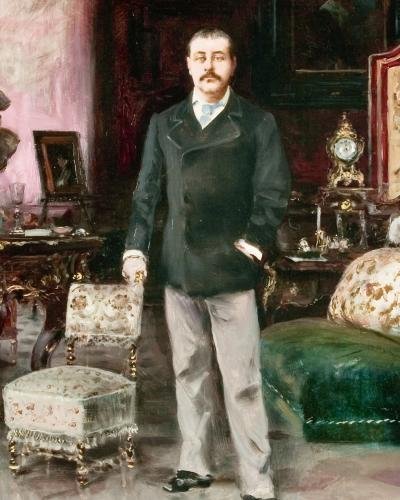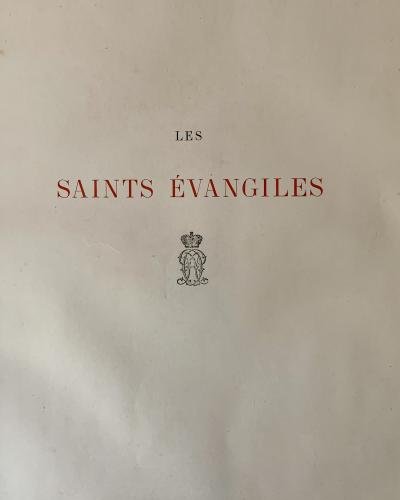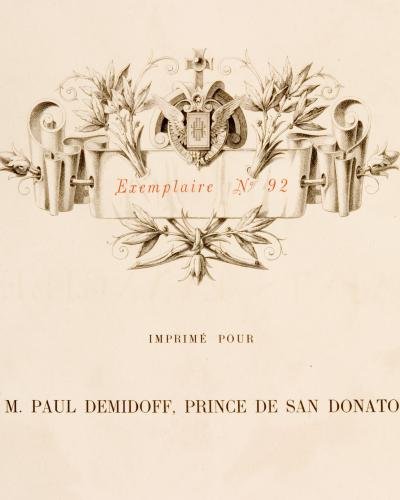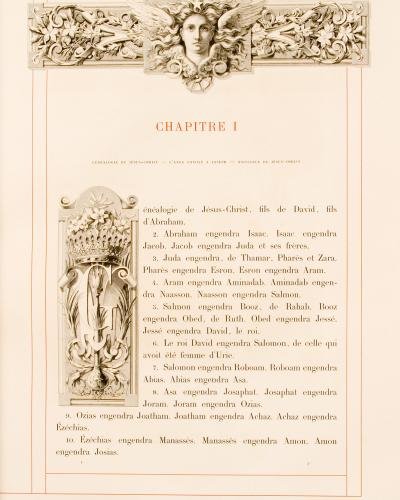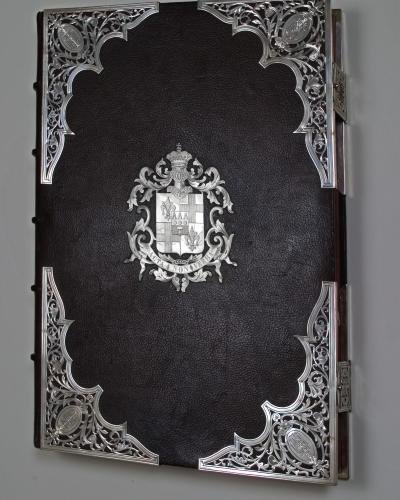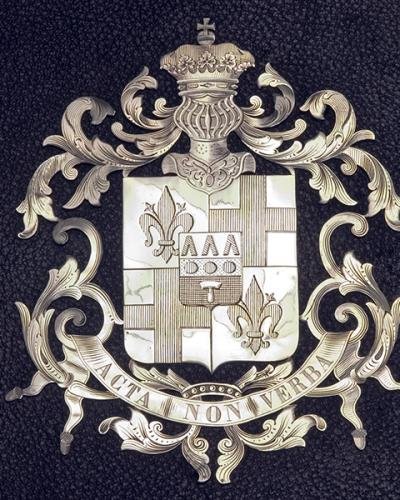This latest NewsLetter, for the most part, presents a short essay presented to the author by the late Gino Chelazzi on 14 August 1999. In his presentation, Chelazzi discusses the finding of a literary and artistic masterpiece that originally pertained to the library of Paul Pavlovitch Demidoff, 2nd Prince of San Donato (1839-1885).
On this date of 14 August 1999, a two-volume, large folio edition was found in a Florentine antiquarian book market that must be properly recognised as a true work of art. Printed in 1873 by the French publishing house, Librairie Hachette of Paris, this imposing two-volume edition of the Four Gospels of the New Testament (Traduction de Bossuet in French), is over-shadowed by its engravings designed by the French painter, Alexandre Bida (1813-1895). The Four Gospels pertain to both the Catholic and the Russian Orthodox Church to which belonged Prince Paul Pavlovitch Demidoff. Of the 128 fine engravings by Alexandre Bida, 28 are Bida originals, while 100 are after illustrations by the likes of H. Browne, Bracquemond, Chaplin, Deblois, L. Ed. Girardet, Haussoullier, Massard, Célestin Nanteuil, and Veyrassat, amongst others, and under the direction of Edmund Hédouin.
The version specially created for Prince Paul Demidoff was Number 92. The binding was then separately commissioned by Prince Demidoff which involved, at the very least, two craftsmen, the actual book-binder and a silversmith. The binding was ordered in gilt-tooled crushed full dark brown morocco with gold lettering on spines. The first inside cover is lined in crimson satin, the next in marbled paper, followed by a captioned tissue-guard for each engraving.
The library mark on the inside top left corner shows that this literary masterpiece was prominently presented in display case number 1 (Vitrine No. 1) at Villa di San Donato that Prince Paul Demidoff had inherited from his uncle following his passing in 1870. The library stamp is the distinctive stamp used by Prince Paul Demidoff to denote those books that he himself acquired and added to the libary of the Villa di San Donato. Prince Paul Demidoff most often used this singular stamp together with the 'classic', and oftenseen stamp, “Bibliothèque de San Donato” on his literary purchases.
However, Prince Paul Demidoff wished for further embellishments to his two-volume book. He ordered for the binding to be decorated with a series of silver friezes, finished in fretwork, followed by a burin engraving comprising the monogram IHS, in which the I is represented by a cross in which the other two letters are entangled. More spectacularly, at the centre of each of the two covers, and also in silver, he ordered the Demidoff 'coat of arms' to feature, engraved with a burin and showing underneath, 'Acta Non Verba'. The silver decoration was then affixed onto a thin sheet of wood, that formed part of each cover, with a series of very small silver nails.
Chelazzi goes on to explain that these precious books were found by chance in Florence given that there was no announcement nor advertising involved. The two-volume book does not feature in the Catalogue of the Sale of the Library of Villa di San Donato in 1880 so must have been retained by Prince Paul Demidoff for sentimental value. There is a possible connection to the passing, under tragic and painful circumstances, of his first wife, Princess Maria Elimovna Meshcherskaya, during childbirth in 1868. It was this tragic family event that transformed Paul into a highly religious and serious civic leader.
In the end, Gino Chelazzi explains that he is most pleased that, following a circuitous and unknown path, this literary masterpiece once more is returned 'home', so to a Demidoff family descendant who truly honours his forebears, together with their important cultural and artistic contribution.
